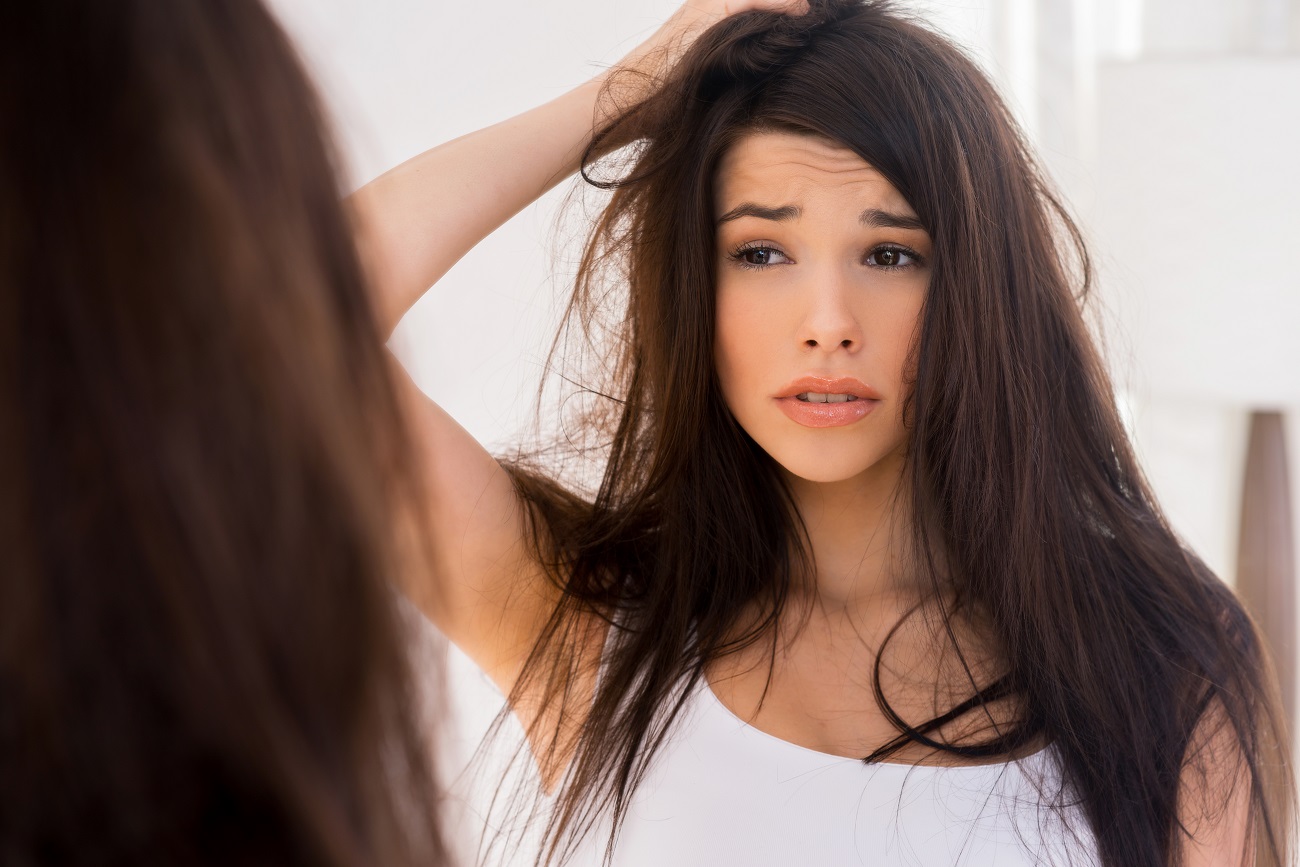Hey, have you ever thought about the water you use for a hair wash? I guess, you haven’t. It doesn’t matter, right? Actually, it does!
Hard water harms your hair! Too many minerals don’t have a good influence on hair condition. They settle on hair surface and penetrate inside through cuticles. Effect? Coarse, brittle, dull, stiff, tangled hair.
I used to know (literally) nothing about how hard water affects hair. I used to think that the only things that make my hair look the way it looks include a shampoo, conditioner, whether I choose right products for my needs and how often I apply hair oil treatments.
Then, all of a sudden, I got stunned. I’ve looked into an article on the influence of minerals included in hard water on hair. I simply can’t help sharing it with you.
Plus & minus. How does hard water affect your hair?
Hard water ions are positively charged so they’re cations (remember studying that in Physics class?). Hair conditioners are positively charged as well. On the other hand, hair is negatively charged, especially hair roots and damaged fragments. To make things worse, hair might get static. In other words – it gets even more negative charges.
All in all… hair is negative, hard water minerals are positive. What does it mean? They attract each other! That is why hair absorbs everything that’s inside hard water. Mineral ions in water settle on hair surface or scalp, as well as get into the hair cortex and even to the medulla which make up hair inner part.
Keep in mind! Damaged hair attracts more minerals so the bad influence of hard water will be more noticeable. Nevertheless, it affects all hair types.
Fine… I got slightly carried away with the physics theory. Now what? Let’s draw proper conclusions. The fact that hair attracts hard water minerals only seems to be beneficial. After all, our body needs minerals, right?
What happens to hair in contact with hard water?
Let’s get to the point! We already know that hair absorbs mineral ions. What does it actually mean? Is it visible on hair? Yes, it is. We often blame hair products, not water.
Washing hair in hard water makes hair:
- much stiffer;
- very coarse and bumpy to the touch;
- really tangled and difficult to comb out;
- brittle and prone to damage;
- dull, lackluster;
- lose elasticity, making styling routine harder;
- more resistant to the performance of conditioners and oils.
You can’t deny it, we like to blame wrong conditioners, ingredients of cosmetics, the sunlight, low temps, dry air inside, hormonal changes for the unwanted effects in daily care. In other words, we blame everything, except for water. Surprisingly, it is often the hard water giving us a bad hair look.
How to freed hair from hard water residue?
It is not so easy to care for hair that absorbs too many minerals and is coated by them. To remove the mineral build-up from hair surface, you need a chelating agent which is able to take the minerals off your strands. Go for a clarifying chelating shampoo – it’s the easiest way. What should the chelating shampoo include?
Hair chelating ingredients:
- Disodium EDTA (Ethylamine Diamine Tetraacetic Acid),
- Tetrasodium EDTA,
- Pentasoidum Pentetate,
- Sodium gluconate,
- Sodium phytate, phytic acid.
Of course, apart from chelating ingredients, the shampoo must contain moisturising and strengthening substances to avoid hair dehydration and dryness. All actions we take to cleanse hair and remove the hard water residue may have a bad impact on hair condition. Together with harmful mineral excess, we get rid of valuable sebum produced by sebaceous glands in order to ensure smoothness and protect hair from the loss of moisture.
Instead of repairing, prevent it!
You already know the way hard water affects hair. Before you start blaming a new shampoo for hair breakage or coarseness, think if it’s not tap water to be blamed. Being conscious is the key.
How can you keep the minerals from settling on your hair? Most of all, wash it using clean, scale-free water. Use a filter jug for filtering the tap water. I know that this technique isn’t as comfy as simply using the tap water. However, there is a solution for the lazy ones – specially-designed water softeners that you can have installed to enjoy clean tap water without the excess of minerals. I recommend it because I have one 🙂


Leave a Reply